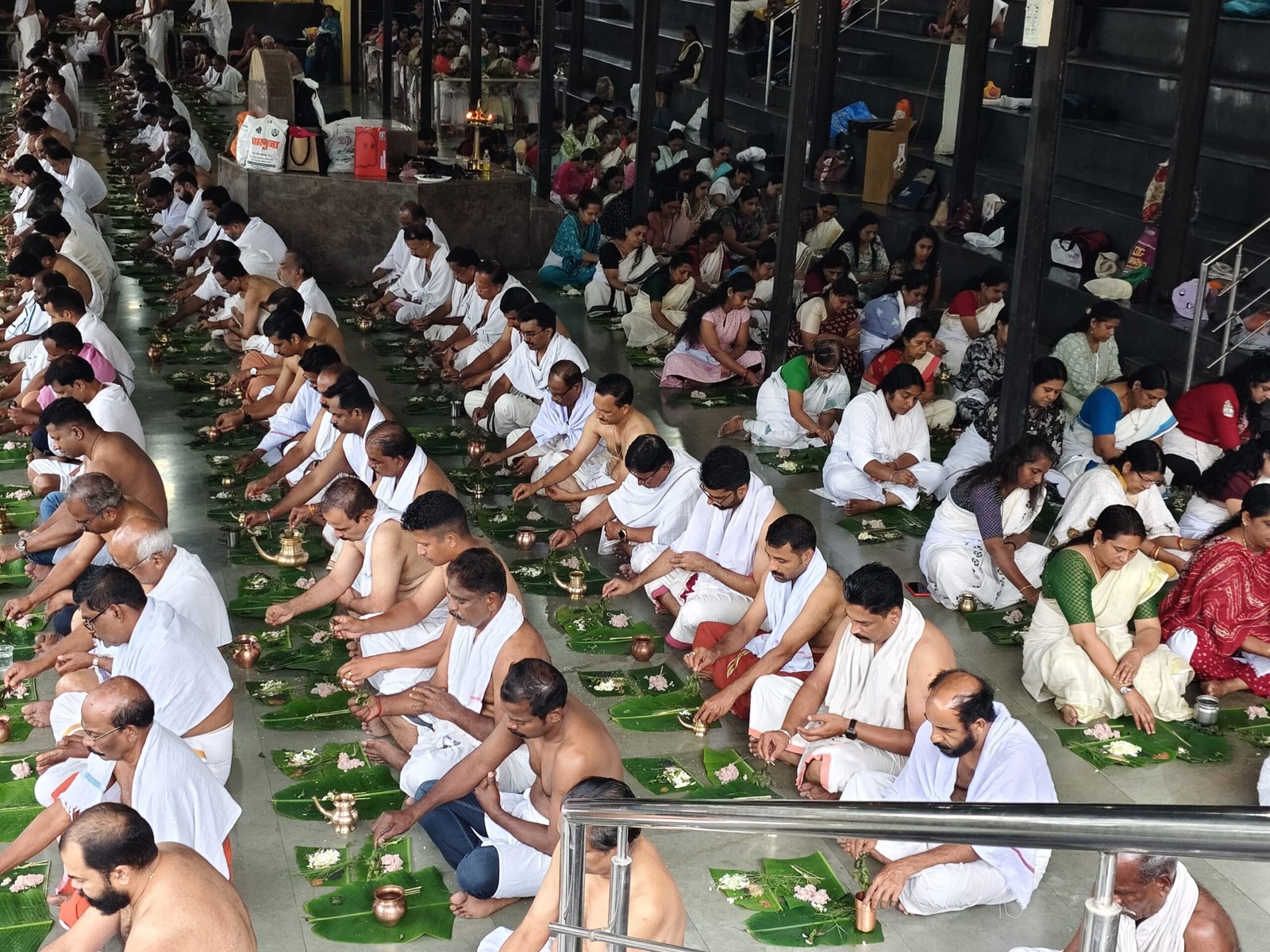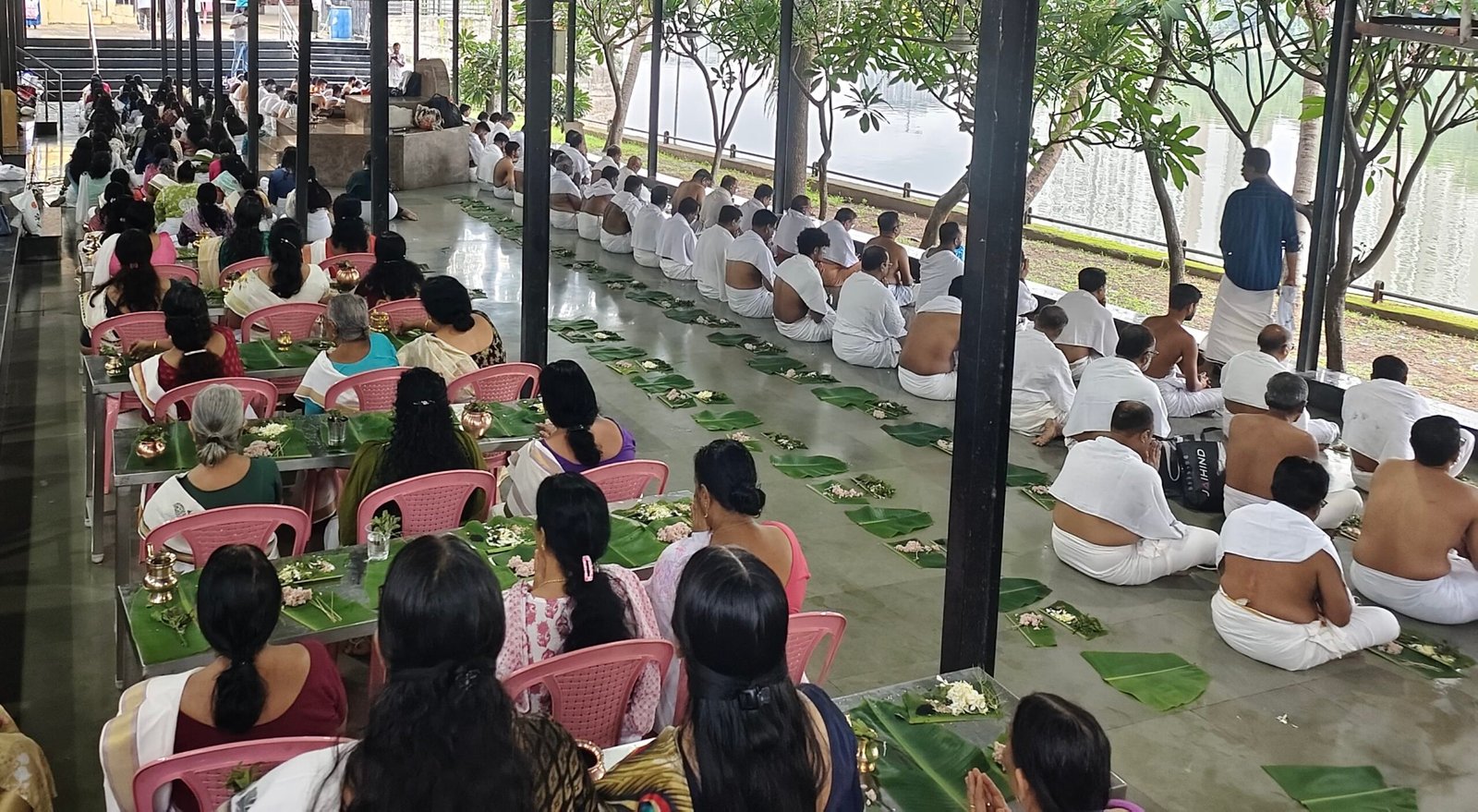Pithru Tharpan and Shradha karma
- Pithru Tharpan is a significant ritual in Hinduism, particularly during Pitru Paksha, or Dakshinayana. Based on the regionally customised rituals and period, pithrukarma has slight differences across India
- Pithru Tharpan is a ritual offering made to ancestors, typically performed by descendants to seek their blessings and liberation. It involves offering water, sesame seeds, and rice balls (pinda) to the ancestors, accompanied by prayers and mantras.
Purpose of Pithru Tharpan
The primary purpose of Pithru Tharpan is to:
- Show respect and gratitude: To honor and acknowledge the contributions of ancestors.
- Seek blessings: To seek their blessings for the well-being and prosperity of the family.
- Liberate ancestors: To help ancestors attain liberation (moksha) from the cycle of birth and death.
Significance of Pithru Tharpan
Pithru Tharpan is believed to:
- Bring peace and prosperity: To the family and descendants.
- Ensure ancestral blessings: For the well-being and success of the family.
- Fulfill ancestral wishes: By performing the ritual, descendants can fulfill their ancestors’ unfulfilled wishes.
How is Pithru Tharpan performed?
The ritual typically involves:
- Preparation: Fasting, purification, and preparation of offerings.
- Invocation: Invocation of ancestors and offering of water, sesame seeds, and rice balls.
- Mantras and prayers: Recitation of specific mantras and prayers to honor ancestors.
- Offerings: Offering of food, water, and other items to ancestors.
Pithru Tharpan is a meaningful ritual that helps connect with one’s heritage and ancestors.
Shraddha Karma
Shraddha Karma refers to rituals and practices in Hinduism that honor an individual ancestor to remember on the death anniversary day, and ensure their peace and well-being in the afterlife. Shraddha Karma involves offering food, water, and other items to ancestors, typically through a priest or family member. The ritual is performed to:
- Honor ancestors: Show respect and gratitude to those who have passed on.
- Ensure their peace: Provide nourishment and satisfaction to the ancestors’ spirits.
- Seek their blessings: Ask for their blessings and protection for the family.
Types of Shraddha
There are different types of Shraddha, including:
- Nitya Shraddha: Daily offerings to ancestors.
- Naimittika Shraddha: Occasional offerings, such as during festivals or special events.
- Kamya Shraddha: Optional offerings for specific purposes, like seeking ancestors’ blessings.
Significance of Shraddha Karma
Shraddha Karma is significant because it:
- Acknowledges the cycle of life: Recognizes the natural cycle of birth, life, and death.
- Provides spiritual support: Offers spiritual support to the ancestors’ souls.
- Fosters family bonds: Strengthens family ties and promotes a sense of continuity.
By performing Shraddha Karma, individuals can show respect and gratitude to their ancestors, while also seeking their blessings and protection.



